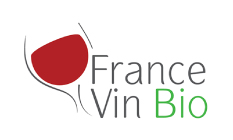100% of all agricultural ingredients used must be certified as organic: grapes, sugar, alcohol, rectified concentrated must (RCM).
Organic wine ?
Organic wine is made using only certified organic grapes, grown without GMOs, synthetic pesticides, herbicides, fungicides and chemical fertilisers. Since 2012, new winemaking regulations (UE 203/2012) mean that the whole process, from harvest to bottle can be certified, and the term ‘Organic Wine’ can be used.
Red, white and rosé wines, champagnes, sparkling and creamy, mellow and sweet: all wines, from all regions, can be organic!
Any farm that wishes to produce organically has to undergo a process known as ‘conversion’. During this period, organic production methods need to be used but the resulting product cannot be sold as organic. The length of this conversion period is 3 years for vines. The winemaker can only communicate about his organic commitment from the second year of conversion. The statement will then be: “Produced in conversion to organic farming”.
Organic wine making
The new organic winemaking rules came into effect on 1 August 2012. The requirements are the same for all European countries. They are based on four key points defined in the wine CMO:
100% of all agricultural ingredients
Restrictions or interdictions on use
Restrictions or interdictions on use of certain physical procedures (e.g.: dealcoholisation, electrodialysis, heating >70°C, are all forbidden practices). Respect of a restricted list of additives and oenological auxiliaries (organic origin favoured for some).
Restrictions on total SO2 level in wine sold
The winemaker must comply with these requirements in order to qualify for the «organic wine» and the European organic label. He cannot just certify the grapes. The term «wine made from organic grapes» can no longer be used on wines produced from the 2012 vintage.
